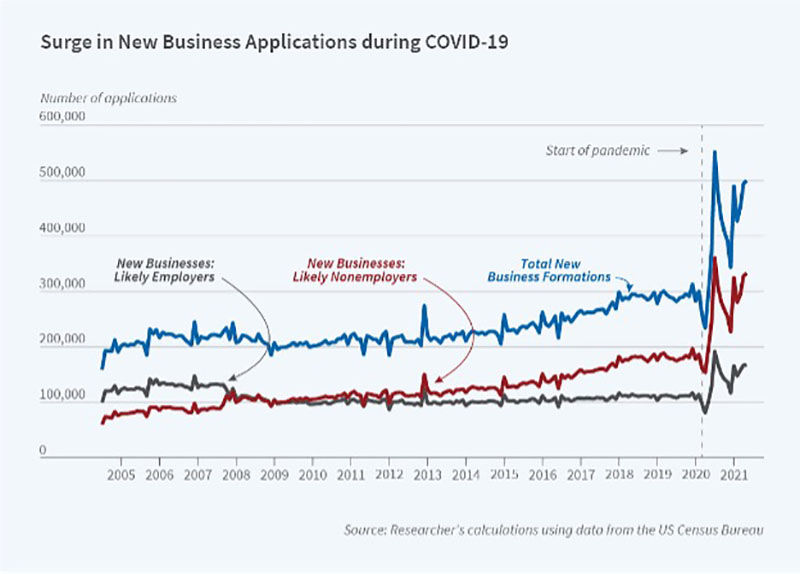According to the National Education Association, a full 600,000 teachers have already left teaching since January 2020, and a recent NEA poll indicated 55% more will quit prematurely. So, teachers are fast becoming a very talented recruiting pool.
How Much Does Pay Really Impact Employee Turnover?

Does “Better Opportunities” Actually Mean Better Pay?
There is a perpetual perceived link between turnover and pay, especially in the eyes of first-line supervisors who see employees walk out the door and can’t imagine it’s because of themselves. Plus saying you are leaving for more money is clean and indefensible, even if not true. Or the bottom-feeder phrase is “better opportunity” which can mean anything but is commonly accepted as leaving for more money.
The reality is we often times don’t know why employees quit jobs. Pay becomes a target in part because it is tangible…and always controversial. Let’s today apply solid data analysis plus a dash of common sense to grasp why a record number of employees are quitting during The Great Resignation…and how much pay is playing a part.
For context, average pay is jumping all over. Companies are budgeting precedent-setting dollars to increase pay, all of which incidentally contributes to growing inflation. As just one example, the Washington Post recently reported that organizations are planning higher raises than anytime in the past decade.
I reported earlier here on MIT’s instantly-famous study of why employees are quitting during The Great Resignation. This image below details the incredible gap between perceptions and realities regarding the impact of pay:

“Toxic corporate culture” can mean many things, and it brings to mind Gallup’s consistent findings that each supervisor establishes her own culture, despite boardrooms’ optimistic beliefs that companies develop consistent cultures up and down their organizations.
Pay obviously is reported as a much lower reason to leave…and my first thought when I read this report was how can there possibly be 14 leave reasons between toxic corporate culture and pay! But if we assume MIT was able to determine real reasons why employees are quitting, let me offer two theories why pay is so low on their list.
Reason #1: Pay Is Related to Other Job Factors
Think of it this way:
- Employees nearly always rate pay as their greatest need when completing employee surveys, in part because they believe saying so might result in a raise whereas not saying so would likely mean no additional raise is coming. The same is likely true during Stay Interviews in that when the leader asks when you last considered leaving, an employee without a legitimate compelling reason might default to “pay”.
- This is not to say that employees never consider leaving for pay alone, nor that employees never actually leave for pay alone because some do.
- Consider how employees view their pay as they consider a new job, weighing the knowns of the current job versus the unknowns of a future job. They know for example their current leader’s ways, they have relationships with colleagues, and they know the details of their daily work. If one is considering a new job specifically for more pay and they must leave a current job for that additional pay, they know precisely what they are sacrificing.
- The information in #3 above then tells us that employees who leave a current job for a small amount of money are leaving for reasons other than money, that they are choosing to abandon a bad situation and risk that the new situation is better for them.
- On the other hand, employees who are offered very large increases or bonuses, let’s use the example of $20,000, are more likely to leave a good situation.
- So an employee must balance whether to leave for more money versus staying for their current boss, colleagues, and duties, as well as whether they want the challenge of re-establishing their positive reputation in a new workplace.
The bottom line is that everyone’s price to leave is different, depending mostly on how much they like their current job. No one leaves a job they like for an extra quarter an hour…or for professional employees for a $5,000 raise.
Reason #2: The Pandemic Caused Many of Us to Rethink Our Values, Not Pay
The chart below represents the number of new, entrepreneurial businesses formed before and during the pandemic. Consider that this huge spike includes only those businesses for which someone registered for a license. Our government says you don’t need a license if you “conduct business as yourself using your legal name”. This chart represents just those new businesses that have been registered…and likely does not include uber drivers, put-a-sign-out-front professionals, dog-sitters, or many others who abandoned corporate America during The Great Resignation.

Note that the spikes appear to represent monthly data, so the total increase in entrepreneurs is in the millions considering the left axis represents 400,000 to 500,000 job gains each month. And again, this is just a partial list.
Few if any of these workers left their jobs to make more money. They instead walked away from corporate America jobs. These two examples always race to my mind:
- The mid-forties healthcare worker who told the Wall Street Journal he decided during the pandemic that his highest value was taking his daughters to soccer practice which his then-corporate job wouldn’t permit him to do, leading him to start his own from-home healthcare consulting business.
- And thousands of restaurant servers who liked their jobs in 2019 when they lost them, but then took online courses and found more fulfilling jobs rather than return to work weekends and holidays serving customers.
It’s easy to conclude that giving employees more money to keep them is usually a good idea…pending of course that pay compression doesn’t cause others to leave because they feel shorted. But anyone who believes pay is the automatic, reflexive answer for retention is way, way off the mark.
The number one reason employees stay or leave is how much they trust their boss. Write that on the blackboard a hundred times and we begin to understand all of the things we do that we think will improve turnover but do not…and this list usually includes pay.



